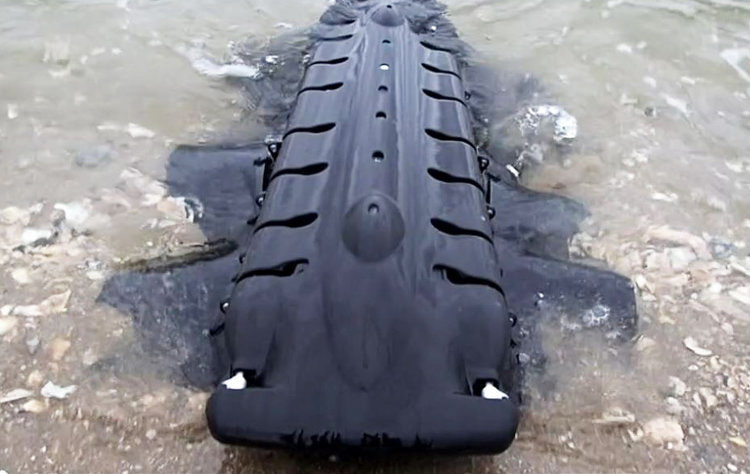
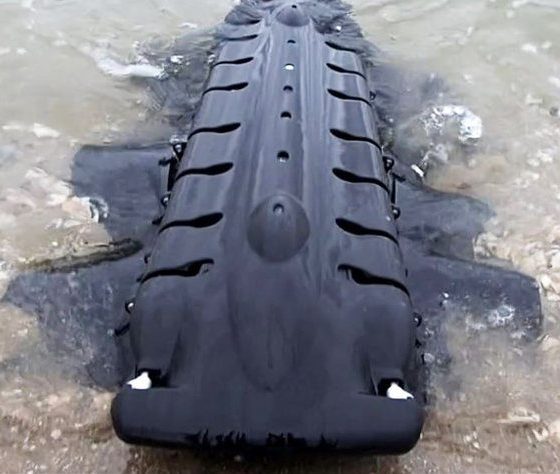
News
Three creepy, yet useful robots for rescue missions and deep space travel
Whether or not you welcome humanity’s coming overlord robots, there’s something entertaining about watching them grow up. We’ve all seen Boston Dynamics release one video after the other displaying their robot dogs trotting around opening doors and their humanoid bots overcoming obstacle courses while being abused by their human creators (p.s. they won’t forget). However, they’re not the only company with some interesting, impressive, and somewhat creepy robotic developments. Here are three we thought should be on your radar:
Robugtix Z6 Spider-Bot
This little spider-like guy made some waves at the end of this month with its coordinated dance moves shown off in an 80s-style aerobics video. Its maker is Hong Kong-based robotics company Robugtix, and apparently they have a strong preference for arachnids in their designs. The Z6 has three other siblings in the family, all spider-like in their design as well, and all movie stars in their own right.
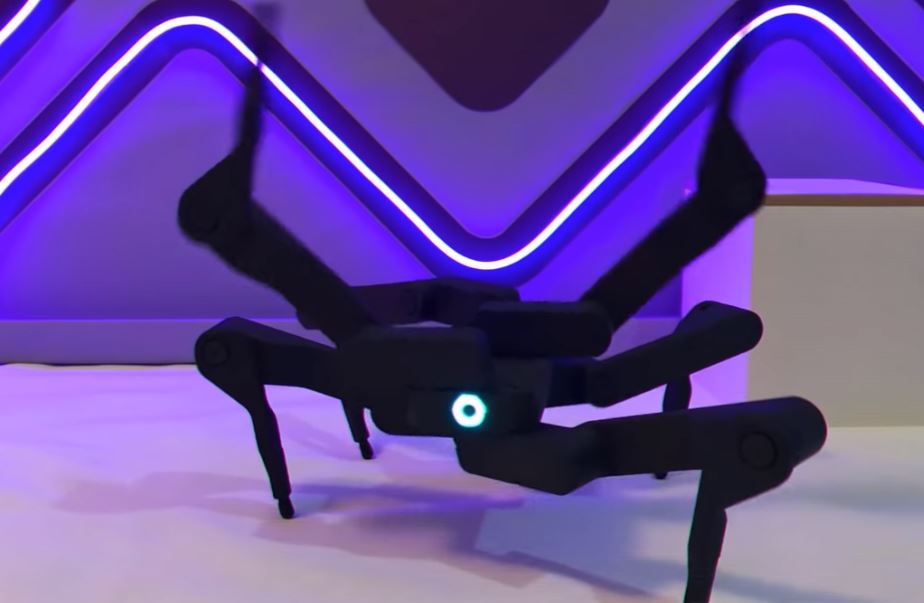
Described as “portable and foldable…for use in professional environments”, the Z6 boasts the ability to climb stairs, fold up into a compact/backpack size, roll over, right itself if upside down, and navigate in confined spaces and irregular terrain. A built-in camera provides video streaming and monitioring from its wireless joystick controller. At its smallest, the Z6 is 10 cm (L) x 23 cm (W) x 13.7 cm (H); default standing mode is 52 cm (L) x 49 (W) cm x 17 cm (H). Given the capabilities, some industrial applicability may be in the works, i.e., search and rescue assistance.
Looking for a price? You might not want to ask just yet, and you’ll have to if you want to know for sure. Its siblings range from around $1000 (T8X) to $40,000 (RoboNOBE Black Widow), so we can only guesstimate what this (-tiny-) compact dancer’s cash money trade value will be.
To see the Z6’s awesome dance moves, watch the video below:
Velox by Pliant Energy Systems
This robot actually evolved from research into renewable energy, specifically capturing wave and tidal energy. CEO Pietro Filardo of Pliant Energy Systems, the maker of Velox and based in New York, used his background in marine biology to design biomorphic devices that could not only capture energy from aquatic sources but also propel them. As seen by the ribbon-like attachments directing the bot’s motion, the final design involved a flexible fin moving in wave motions driven by internal actuators. With a few extra degrees of motion, Velox can also move across solid surfaces include sand, snow, pebbles, paving, and solid ice. To quote its makers, it can “swim like a ray, crawl like a millipede, jet like a squid, and slide like a snake.”
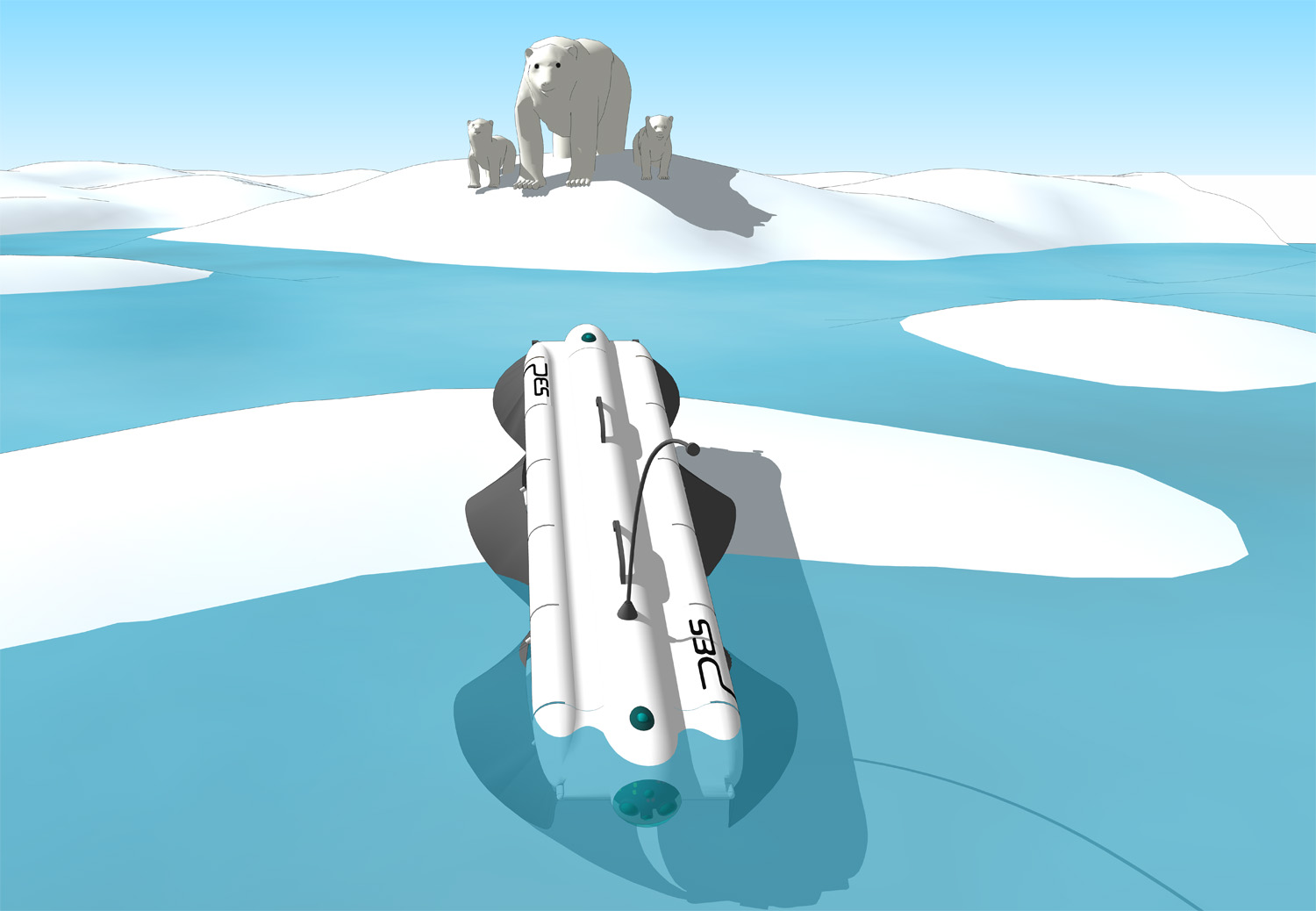
Pliant apparently has big plans for Velox’s eventual prodigy. The company’s website lists stealth characteristics and maneuverability useful for surf zone, amphibious beach, and polar ice missions – an obvious military appeal that’s not surprising considering the partial funding received from the U.S. Office of Naval Research, an organization within the Department of the Navy. Civilian uses are also suggested, if its proof-of-concept videos aren’t imagination-inspiring enough, such as personal propulsion for divers, propeller replacement for environmentally-sensitive waters like coral reefs, and search and rescue operations, specifically in the case of thin ice fall victims.
The company has been developing patented technologies since 2007 and its research has been sponsored by a variety of local and federal agencies including the National Science Foundation and U.S. Department of Agriculture. Pliant’s novel fin system (“undulating”, i.e., smooth and wavy) is also being applied towards its original intention – water energy generation – for which its design is useful where dams are not practical or desirable. Velox itself is still in the proof-of-concept stage, but its capabilities are already on display for admiration.
Watch the below video to see Velox in action:
Robotic Skins by Yale University
Admittedly, these devices aren’t actually robots but rather make things into robots. Designed by Yale University as a NASA initiative, “robotic skins” are sheets of elastic material with robot components embedded inside, i.e., actuators and sensors. When wrapped around compatible objects, they provide movement and sensing functionality as needed to perform tasks.
Deep space traveling was the inspiration for their design – preparing for the unknown. If travelers can’t be sure what robotic functionality will be needed in a somewhat unpredictable environment, it would be useful to have the ability to create what’s needed on-demand. Demonstrations of the skins thus far have included a stuffed horse walking, a cylinder crawling like a worm, a claw for moving things, and a posture sensor that vibrates when a user is slouching. Perhaps implementing multiple skins could create a bot that both flipped pages in a spacecraft instruction manual and slapped the reader when they stopped paying attention. Hey, deep space might also be boring.
Watch the below video for more on how these “robotic skins” work:

News
Tesla Cybercab spotted with interesting charging solution, stimulating discussion
The port is located in the rear of the vehicle and features a manual door and latch for plug-in, and the video shows an employee connecting to a Tesla Supercharger.
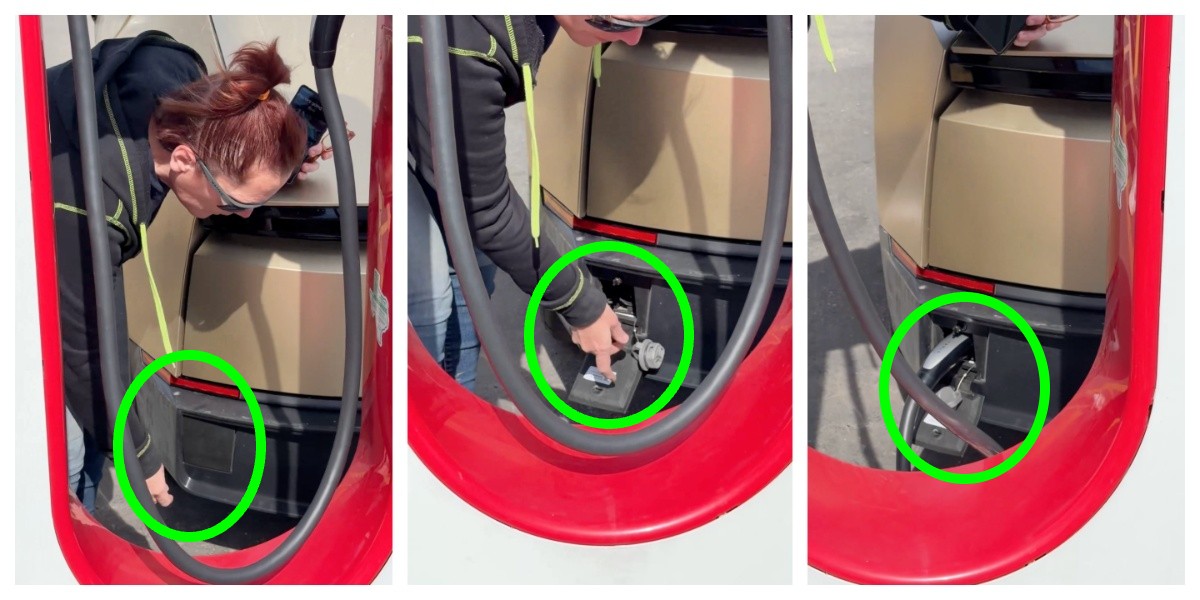
Tesla Cybercab units are being tested publicly on roads throughout various areas of the United States, and a recent sighting of the vehicle’s charging port has certainly stimulated some discussions throughout the community.
The Cybercab is geared toward being a fully-autonomous vehicle, void of a steering wheel or pedals, only operating with the use of the Full Self-Driving suite. Everything from the driving itself to the charging to the cleaning is intended to be operated autonomously.
But a recent sighting of the vehicle has incited some speculation as to whether the vehicle might have some manual features, which would make sense, but let’s take a look:
🚨 Tesla Cybercab charging port is in the rear of the vehicle!
Here’s a great look at plugging it in!!
— TESLARATI (@Teslarati) January 29, 2026
The port is located in the rear of the vehicle and features a manual door and latch for plug-in, and the video shows an employee connecting to a Tesla Supercharger.
Now, it is important to remember these are prototype vehicles, and not the final product. Additionally, Tesla has said it plans to introduce wireless induction charging in the future, but it is not currently available, so these units need to have some ability to charge.
However, there are some arguments for a charging system like this, especially as the operation of the Cybercab begins after production starts, which is scheduled for April.
Wireless for Operation, Wired for Downtime
It seems ideal to use induction charging when the Cybercab is in operation. As it is for most Tesla owners taking roadtrips, Supercharging stops are only a few minutes long for the most part.
The Cybercab would benefit from more frequent Supercharging stops in between rides while it is operating a ride-sharing program.
Tesla wireless charging patent revealed ahead of Robotaxi unveiling event
However, when the vehicle rolls back to its hub for cleaning and maintenance, standard charging, where it is plugged into a charger of some kind, seems more ideal.
In the 45-minutes that the car is being cleaned and is having maintenance, it could be fully charged and ready for another full shift of rides, grabbing a few miles of range with induction charging when it’s out and about.
Induction Charging Challenges
Induction charging is still something that presents many challenges for companies that use it for anything, including things as trivial as charging cell phones.
While it is convenient, a lot of the charge is lost during heat transfer, which is something that is common with wireless charging solutions. Even in Teslas, the wireless charging mat present in its vehicles has been a common complaint among owners, so much so that the company recently included a feature to turn them off.
Production Timing and Potential Challenges
With Tesla planning to begin Cybercab production in April, the real challenge with the induction charging is whether the company can develop an effective wireless apparatus in that short time frame.
It has been in development for several years, but solving the issue with heat and energy loss is something that is not an easy task.
In the short-term, Tesla could utilize this port for normal Supercharging operation on the Cybercab. Eventually, it could be phased out as induction charging proves to be a more effective and convenient option.
News
Tesla confirms that it finally solved its 4680 battery’s dry cathode process
The suggests the company has finally resolved one of the most challenging aspects of its next-generation battery cells.
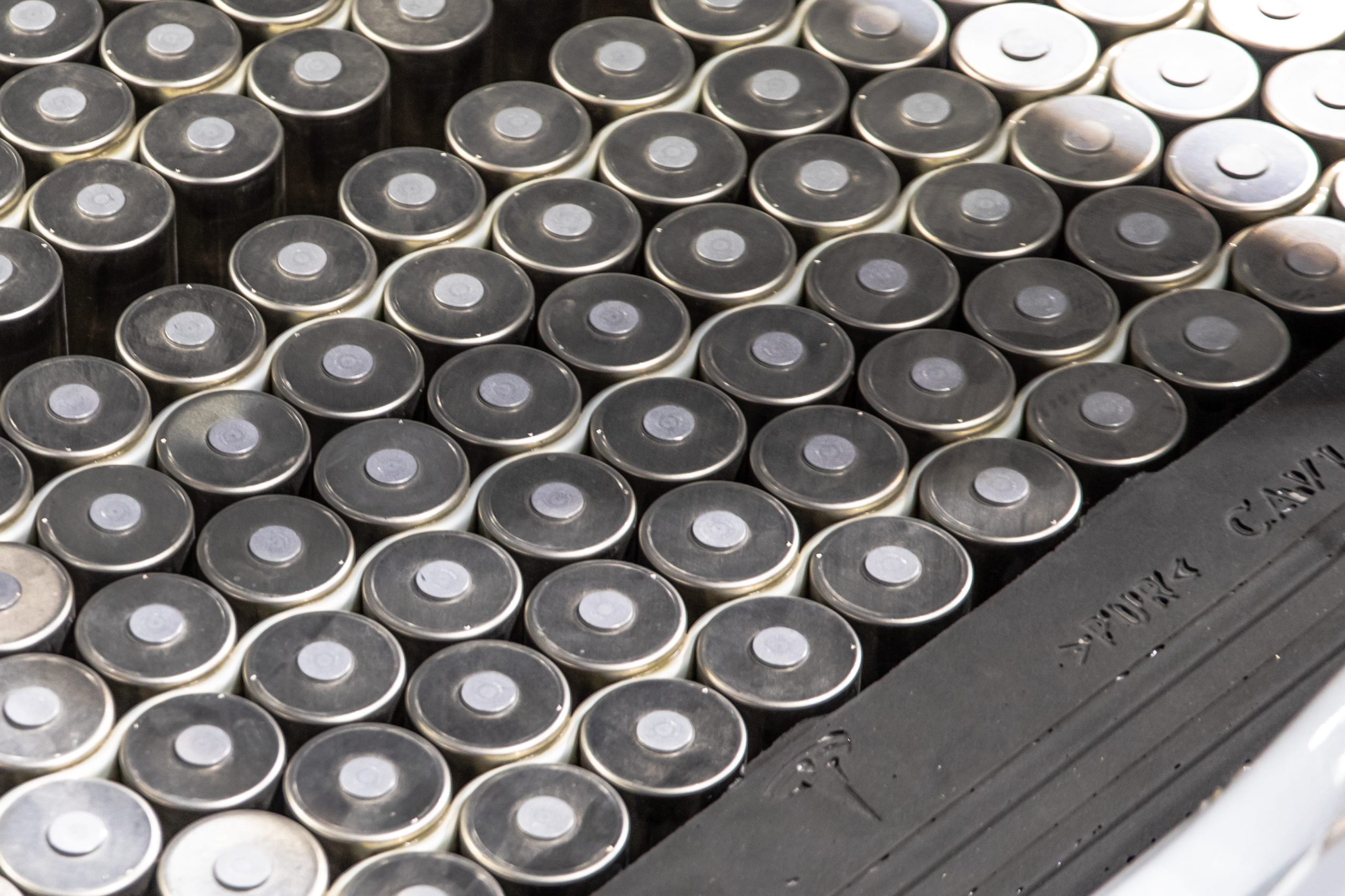
Tesla has confirmed that it is now producing both the anode and cathode of its 4680 battery cells using a dry-electrode process, marking a key breakthrough in a technology the company has been working to industrialize for years.
The update, disclosed in Tesla’s Q4 and FY 2025 update letter, suggests the company has finally resolved one of the most challenging aspects of its next-generation battery cells.
Dry cathode 4680 cells
In its Q4 and FY 2025 update letter, Tesla stated that it is now producing 4680 cells whose anode and cathode were produced during the dry electrode process. The confirmation addresses long-standing questions around whether Tesla could bring its dry cathode process into sustained production.
The disclosure was highlighted on X by Bonne Eggleston, Tesla’s Vice President of 4680 batteries, who wrote that “both electrodes use our dry process.”
Tesla first introduced the dry-electrode concept during its Battery Day presentation in 2020, pitching it as a way to simplify production, reduce factory footprint, lower costs, and improve energy density. While Tesla has been producing 4680 cells for some time, the company had previously relied on more conventional approaches for parts of the process, leading to questions about whether a full dry-electrode process could even be achieved.
4680 packs for Model Y
Tesla also revealed in its Q4 and FY 2025 Update Letter that it has begun producing battery packs for certain Model Y vehicles using its in-house 4680 cells. As per Tesla:
“We have begun to produce battery packs for certain Model Ys with our 4680 cells, unlocking an additional vector of supply to help navigate increasingly complex supply chain challenges caused by trade barriers and tariff risks.”
The timing is notable. With Tesla preparing to wind down Model S and Model X production, the Model Y and Model 3 are expected to account for an even larger share of the company’s vehicle output. Ensuring that the Model Y can be equipped with domestically produced 4680 battery packs gives Tesla greater flexibility to maintain production volumes in the United States, even as global battery supply chains face increasing complexity.
Elon Musk
Tesla Giga Texas to feature massive Optimus V4 production line
This suggests that while the first Optimus line will be set up in the Fremont Factory, the real ramp of Optimus’ production will happen in Giga Texas.
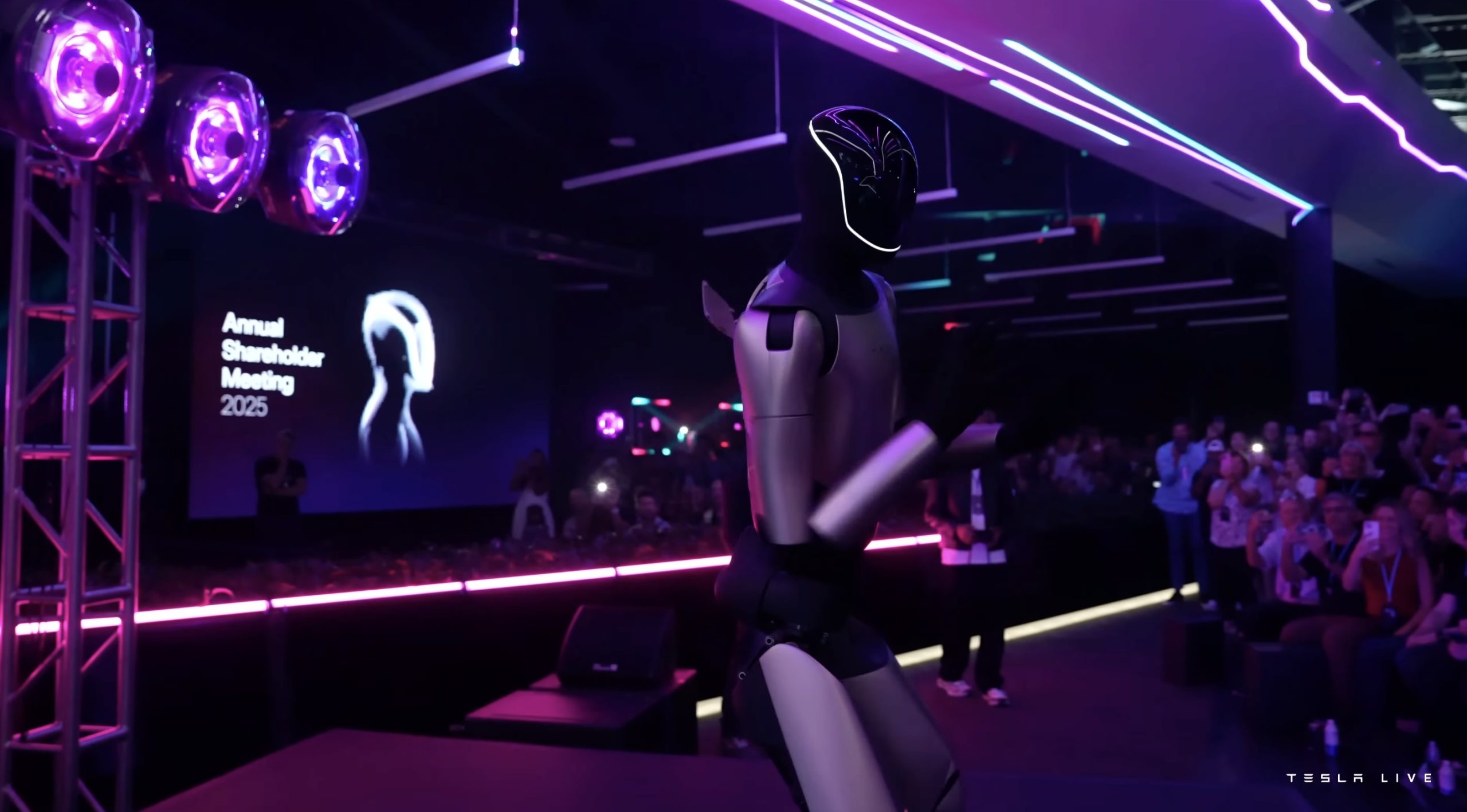
Tesla will build Optimus 4 in Giga Texas, and its production line will be massive. This was, at least, as per recent comments by CEO Elon Musk on social media platform X.
Optimus 4 production
In response to a post on X which expressed surprise that Optimus will be produced in California, Musk stated that “Optimus 4 will be built in Texas at much higher volume.” This suggests that while the first Optimus line will be set up in the Fremont Factory, and while the line itself will be capable of producing 1 million humanoid robots per year, the real ramp of Optimus’ production will happen in Giga Texas.
This was not the first time that Elon Musk shared his plans for Optimus’ production at Gigafactory Texas. During the 2025 Annual Shareholder Meeting, he stated that Giga Texas’ Optimus line will produce 10 million units of the humanoid robot per year. He did not, however, state at the time that Giga Texas would produce Optimus V4.
“So we’re going to launch on the fastest production ramp of any product of any large complex manufactured product ever, starting with building a one-million-unit production line in Fremont. And that’s Line one. And then a ten million unit per year production line here,” Musk stated.
How big Optimus could become
During Tesla’s Q4 and FY 2025 earnings call, Musk offered additional context on the potential of Optimus. While he stated that the ramp of Optimus’ production will be deliberate at first, the humanoid robot itself will have the potential to change the world.
“Optimus really will be a general-purpose robot that can learn by observing human behavior. You can demonstrate a task or verbally describe a task or show it a task. Even show it a video, it will be able to do that task. It’s going to be a very capable robot. I think long-term Optimus will have a very significant impact on the US GDP.
“It will actually move the needle on US GDP significantly. In conclusion, there are still many who doubt our ambitions for creating amazing abundance. We are confident it can be done, and we are making the right moves technologically to ensure that it does. Tesla, Inc. has never been a company to shy away from solving the hardest problems,” Musk stated.








